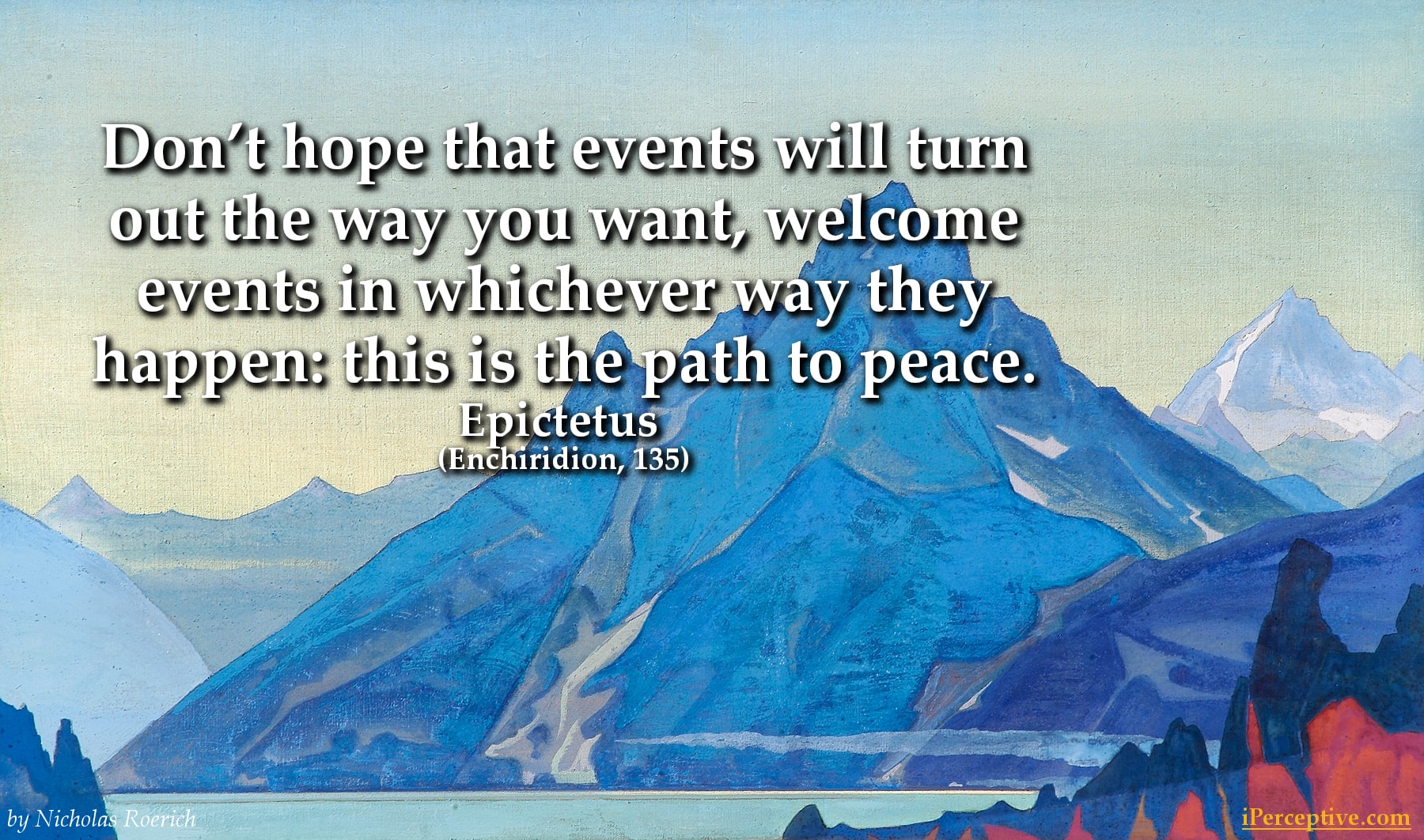Stoic Quotes on Peace of Mind

Today I have got out of all trouble, or rather I have cast out all trouble, for it was not outside, but within and in my opinions.
Marcus Aurelius
(Meditations - Book IX, 167 A.C.E.)
A good mind is a lord of a kingdom.
No man can have a peaceful life who thinks too much about lengthening it.
Men are disturbed, not by things, but by the principles and notions which they form concerning things.
Wait for death with a cheerful mind. For it is according to nature, and nothing is evil which is according to nature.

Don’t hope that events will turn out the way you want, welcome events in whichever way they happen: this is the path to peace.
The mind that is free from passions is a citadel, for man has nothing more secure to which he can fly for refuge and repel every attack.
A limit of time is fixed for you, which if you do not use for clearing away the clouds from your mind, it will go and you will go, and it will never return.
Take me and cast me where you will; for there I shall keep my divine part tranquil, that is, content, if it can feel and act conformably to its proper constitution.
If you are pained by any external thing, it is not this thing that disturbs you, but your own judgment about it. And it is in your power to wipe out this judgment now.
The mind maintains its own tranquillity by retiring into itself, and the ruling faculty is not made worse. But the parts that are harmed by pain, let them, if they can, give their opinion about it.
The greatest hindrance to living is expectancy, which depends upon the morrow and wastes to-day. You dispose of that which lies in the hands of Fortune, you let go that which lies in your own.
Consider that everything is opinion, and opinion is in your power. Take away then, when you choose, your opinion, and like a mariner who has rounded the headland, you will find calm, everything stable, and a waveless bay.
Everyone hurries his life on and suffers from a yearning for the future and a weariness of the present. But he who bestows all of his time on his own needs, who plans out every day as if it were his last, neither longs for nor fears the morrow.
Happiness and freedom begin with a clear understanding of one principle: Some things are within our control, and some things are not. It is only after you have faced up to this fundamental rule and learned to distinguish between what you can and can’t control that inner tranquility and outer effectiveness become possible.
As you think, so you become. Avoid superstitiously investing events with power or meanings they don’t have. Keep your head. Our busy minds are forever jumping to conclusions, manufacturing and interpreting signs that aren’t there. Assume, instead, that everything that happens to you does so for some good. That if you decided to be lucky, you are lucky. All events contain an advantage for you- if you look for it
Quotes by Ancient Stoics
- Zeno of Citium »
- Aristo of Chios »
- Cleanthes »
- Chrysippus »
- Seneca the Younger »
- Gaius Musonius Rufus »
- Epictetus »
- Hierocles »
- Marcus Aurelius »
